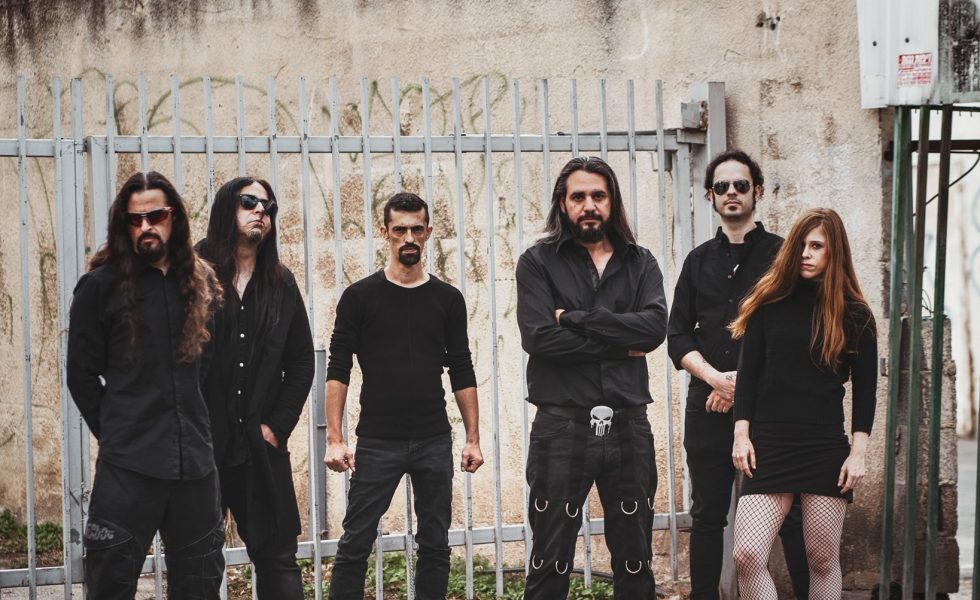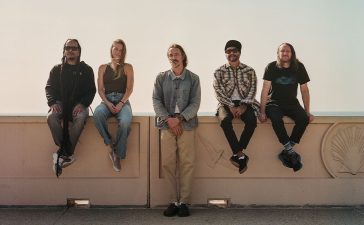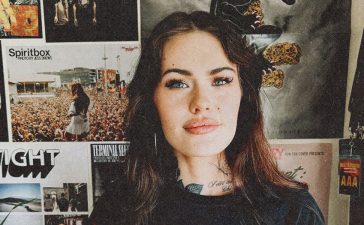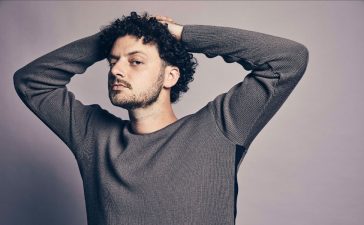Tomorrow’s Rain have had press from all over the world heralding the doom metal success that is their new album.
Hollow has been endorsed by contemporaries My Dying Bride, Paradise Lost, Rotting Christ and more, with features across the board carefully chosen by founder and vocalist Yishai Sweartz. Sweartz has been a promoter in Israel for 25 years, at the core of its alternative community. The bands that featured on Hollow were all on the album for a reason, being friends or heroes of Sweartz himself.
It’s all that which is impressive about Hollow, a peak in Sweartz’ career in metal thus far. But what’s more intriguing is his expertise on how music brings people together, especially in the climate of the Middle East. In speaking to Sweartz, he offers insights on how musicians in Israel come to be, who influences them and what drives them.
“We don’t have role models of huge Israeli artists that did it all over the world and the young fans say, ‘I want to be like that.’ In Australia, a kid holding a guitar has ACDC, INXS, Nick Cave…In Israel, we don’t have that.”
What bands in Israel do have is a sense of justice and activism that Australian artists don’t share. Of course, we have our own social issues, but you’re more often than not going to hear turmoil from a musician down under twisting and turning their stomach over a girl, not a religious war.
“Because Australia is a peaceful country,” Sweartz offers. “Living there is probably more calm and easy than living in Israel. I have a friend from school that used to live in Australia, for 20 years, and he has told me there is a huge difference. You wake up in the morning, you’re not stressed…Living in the Middle East is a time bomb. It’s always stress.”
He continues: “We have the same kinds of social problems. Drugs, crime, violence. But on top of that there is always the problematic situation of the country. You guys in Australia aren’t waking up in the morning and saying, ‘Within one month’s time maybe rockets will fly over Sydney.’ And the people on the other side, in Palestine, they are having the same kind of stress.”
To Sweartz, the solution is to look at people as humans first, rather than focusing on their religions or their beliefs. Some of us grow up with the beliefs of our parents – “I hate the other side because my father hates the other side.” Others born in that environment of hatred realise that they don’t want to carry that weight any longer.
“The message is that with metal music, with the kind of music we play, we try to connect people and burn bridges.”
“Nobody wakes up in the morning at the age of five and says, ‘Hey, I want to be a terrorist’,” Sweartz adds. “It’s never like that. It’s always a result of things that happen in your life. And the way I see it, all sides will learn much more if they focus and say, ‘You be good to me, I’ll be good to you.’ That’s it.”
Acts like Tomorrow’s Rain, and their friends in Orphaned Land, are interrupting the cycle. Orphaned Land play Middle Eastern metal with lyrics in Arabic, English and Hebrew. They’ve become one of the most popular bands in that part of the world, from Lebanon to Turkey to Syria. For those at the back, that has incredible political meaning.
“The message is that with metal music, with the kind of music we play, we try to connect people and burn bridges. When [Orphaned Land] play in Turkey for example, fans come from Syria, from Iraq, from Lebanon, from Israel, and from Turkey of course, to see the band. You see in the venue people from all those countries together. Zero hatred. One big community…That’s the power of art, of course.”
Sweartz notes that it may not be enough to move mountains amongst the spheres of control that determine whether these countries remain in conflict or not, but enacting change starts with individuals. Stopping one person from pursuing a path of violence stops at least the impact that one person could cause.
“We can only change ourselves and the way we feel and our children and our friends,” Sweartz concludes. “I think that music and art is something to connect people and have a higher dimension than political views or religious views. Because, I can tell you that I can talk with a guy from Syria, let’s say. And let’s take it to the extreme. He has grown up to think that Israel are the enemy and Israel is the Zionist nightmare etc. But he likes Slayer and I like Slayer too. If we have one thing in common that we both like Slayer, we can start to grow something out of this little thing. And suddenly we are not enemies anymore because we talk about Slayer.
“Let’s take it further, let’s see if we also like football, let’s see if we also like movies. Using those things, instead of glorifying death, to glorifying life.”










